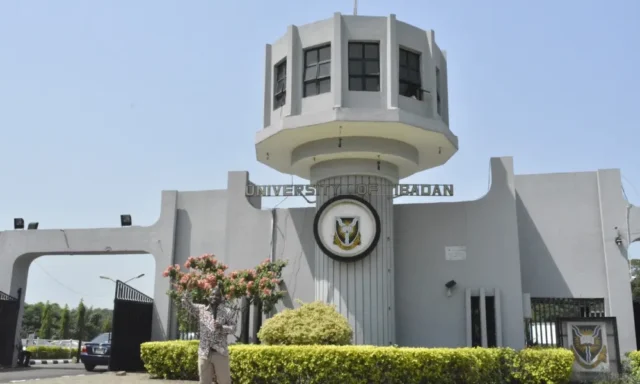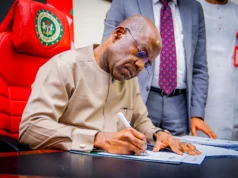At a landmark ceremony to mark the 77th Anniversary and Convocation Lecture of the University of Ibadan (UI), the institution’s Vice‑Chancellor, Professor Kayode O. Adebowale, asserted a compelling vision: the university’s trajectory is deeply linked with the future of Africa as a whole. He told the gathering that UI’s “fate is inseparable from Africa’s future,” emphasising that the institution cannot consider itself apart from the continent it serves.
In his address, Professor Adebowale reflected on UI’s enduring role over more than seven decades, framing the university not merely as an academic body but as a foundational pillar supporting and shaping the aspirations of Nigeria and Africa.
Under the theme “Agenda 2063: All Hands on Deck for the Africa We Want”, selected for the 2025 Convocation Lecture, he invited every stakeholder—students, academics, government, industry and civil society—to recognise that building the Africa envisioned in that blueprint requires collaborative effort across multiple fronts.
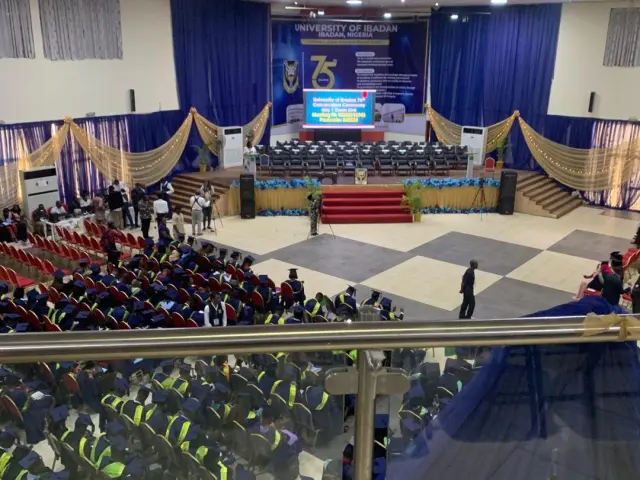
Table of Contents
Leading Knowledge, Shaping the Continent
Professor Adebowale recalled how, since its founding, UI has served as a critical hub of knowledge production: training leaders, fostering innovation, and developing critical thinkers whose work has influenced both national and continental development.
He noted that the chosen theme is more than rhetoric—it is a deliberate roadmap for the university’s place in Africa’s transformation. UI, he argued, must step into the role of an intellectual leader, responding to the continent’s challenges through research, engagement and purposeful service.
The university’s emphasis, as he put it, should be on being relevant—inasmuch to local and national realities as to global academic standards—and on fostering institutional links that enable UI to serve as a conduit between Nigeria and the wider African context.
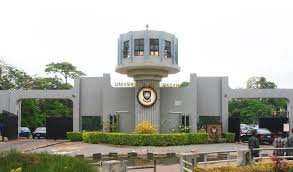
“Agenda 2063”: A Continental Covenant, A University’s Mission
The keynote speaker for the occasion, Professor Sarah Anyang Agbor—an alumna of UI, former Commissioner for Human Resources, Science & Technology at the African Union Commission (AUC), and a noted pan‑African advocate—delivered the lecture. She characterised Agenda 2063 as a “continental covenant” and a solid call to action for all Africans.
According to Professor Agbor, Agenda 2063 compels stakeholders to look back at Africa’s history, assess the present-day challenges, and chart a shared, ambitious path forward. She stressed that the framework underscores ethical leadership, citizen empowerment, and collective responsibility.
She made clear that universities must transcend the notion of being isolated ivory towers. Instead, they must be dynamic centres of innovation, accountable to society, aligned with local realities, and active in shaping the moral and intellectual terrain of the continent. For institutions like UI, this means boosting research, strengthening community relevance, and integrating curricula that blend global competencies with African contexts.
While acknowledging progress in governance and democratic consolidation across Africa, Professor Agbor also pointed to persistent challenges: entrenched corruption, weak institutions, capacity deficits, and mismatches between formal rules and actual practice. These, she argued, are precisely the hurdles universities must confront if the vision of Agenda 2063 is to be realised.
She laid out the seven core aspirations of Agenda 2063:
- A prosperous Africa, grounded in inclusive growth and sustainable development.
- An integrated continent rooted in Pan‑Africanism and Africa’s renaissance.
- An Africa characterised by democracy, good governance, human rights, justice and the rule of law.
- A peaceful and secure Africa.
- An Africa with strong cultural identity, values and ethics.
- A people‑driven Africa that harnesses the potential of women, youth and children
- Africa as a strong, united, influential global player and partner.
In her view, universities like UI hold a critical place in realising these aspirations: not just through teaching and research, but by stepping up as catalysts of transformation.
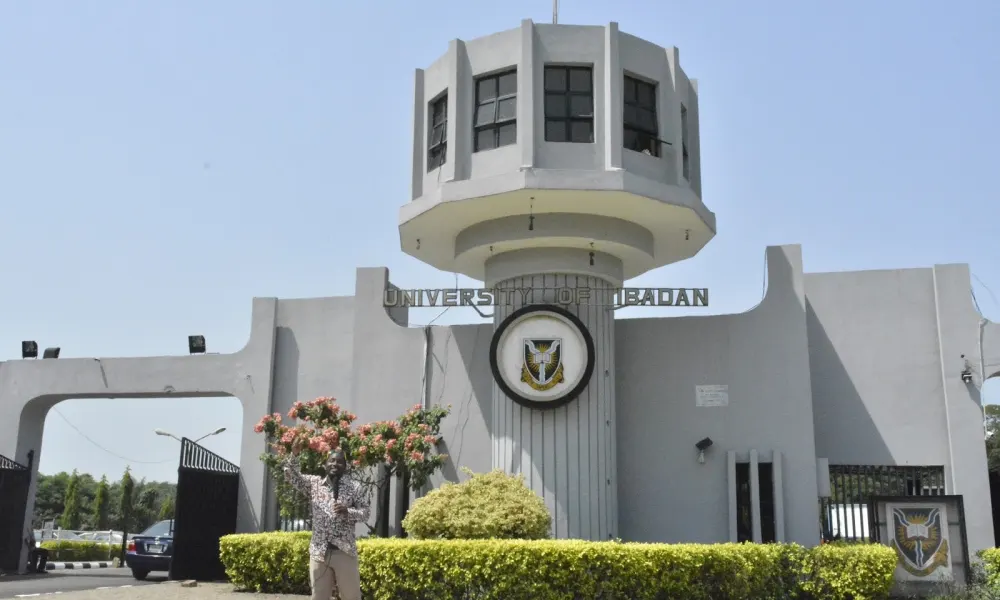
Anchoring UI’s Role in Africa’s Development Journey
The convocation lecture and the foundation‑day commemorations were organised by UI’s Directorate of Public Communication, underscoring the institution’s willingness to engage the wider community in its mission.
For stakeholders—whether they are policy‑makers, research institutions, private sector partners or community activists—the message is clear: institutions like the University of Ibadan cannot operate in isolation if they are to play their part in the Africa we want. A future where universities, governments, industry and citizens collaborate will be the foundation for sustainable development.
From my perspective, having observed similar university events, the significance of such convocation lectures lies not merely in ceremonial honours but in the impetus they give to institutional renewal. At this UI event, the challenge posed is urgent and tangible: if the university embraces this mission, then its own success will be measured not just in awards or rankings but in the lives it impacts—across Nigeria and Africa.
Looking ahead, UI’s leadership faces choices: how to align curricula with African realities, how to stimulate research addressing Africa‑specific challenges (climate change, infrastructure, health, governance), and how to build partnerships that convert knowledge into action. The convocation lecture has set the tone: the question is how effectively the institution will follow through.
The fate of the University of Ibadan and the future of Africa are indeed intertwined—as the vice‑chancellor said—and the actions taken in this academic year may well shape whether that future is one of promise fulfilled or aspirations deferred.
Join Our Social Media Channels:
WhatsApp: NaijaEyes
Facebook: NaijaEyes
Twitter: NaijaEyes
Instagram: NaijaEyes
TikTok: NaijaEyes
READ THE LATEST EDUCATION NEWS


